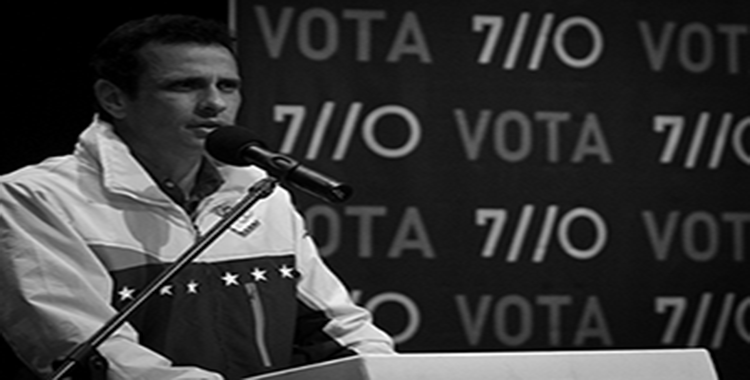Aamina Guidry Journal Contributor
The reelection of Hugo Chavez has caused an unsettling feeling for the country of Venezuela. Chavez won a very close race, with 8-million votes compared to his contender Henrique Capiles Radonski who lost by a ten point margin. He will begin his six year term on Jan. 14 after being in office for 14 years. There are many questions and fears about Chavez being in office for another six years. Economists caution Chavez’s rule with fear of increase in inflation, devaluation of currency and a cut in government spending.
Some international students at Suffolk are appalled and disturbed by the reelection of Chavez. One student, Paola Martinez feels that Chavez in office for another term will only do irrevocable harm to Venezuela. “Six more years of Chavez will mean more years of instability, insecurity and corruption for Venezuela, as that is what has resulted from the past 14 years,” said Martinez. It is an obvious fear that Chavez will do whatever it takes to remain in power and unfortunately lead his country to less ideal situations.
Residents of Venezuela have experienced the turmoil and unfortunate results of Chavez’s power. “I have lived it. It has done more harm than good,” said Martinez.
Another student, Esteban Esquivel shares the same concern, “ My biggest fear is already present, the president has unleashed an economical catastrophe; inflation is the highest in Latin America,” said Esquivel.
Another area of concern is the relationship between the United States and Venezuela. Venezuela is a major oil supplier to the US and with Chavez in office,; it is unknown how the relationship between the two countries will transcend. Martinez is not optimistic that ties between the United States and Venezuela will improve. “Chavez portrays the US as the antagonist,” she said, pessimistic of how the relationship will unravel due to the dislike Chavez has towards America. Martinez believes Chavez’s opinion of the US is that it is opposite of what Venezuela should be. “If he were to stop antagonizing the US, then the basis for his main argument against capitalism and imperialism would disappear,” said Martinez. Esquivel believes ties with the United States will remain the same, “cold but necessary.” He thinks Chavez will not cut off ties with the United States due to their reliance on the country’s petroleum. “When Chavez attacks the US, he does so to put on a show, to create this image of a strong, independent country that does not kneel in front of the ‘imperio,’ yet reality tells another story,” said Esquivel.
Both students are fearful of Venezuela becoming like the unstable Cuba. “I am afraid that my country will end up like Cuba,” Martinez claimed. Cuba and Venezuela have a relationship based on Venezuela supplying Cuba with cheap oil. Castro was more then pleased with the reelection of Chavez. Esquivel fears Chavez is influenced by the Cuban leader. One of the biggest similarities between them is that like Castro, Chavez has been trying to make governments in each of the states of Venezuela less relevant by creating local commissions. These commisions respond to his political interests and by allocating money to them instead of the elected local officials. It is an ominous feeling for the country of Venezuela not knowing what Chavez will accomplish in six years.












